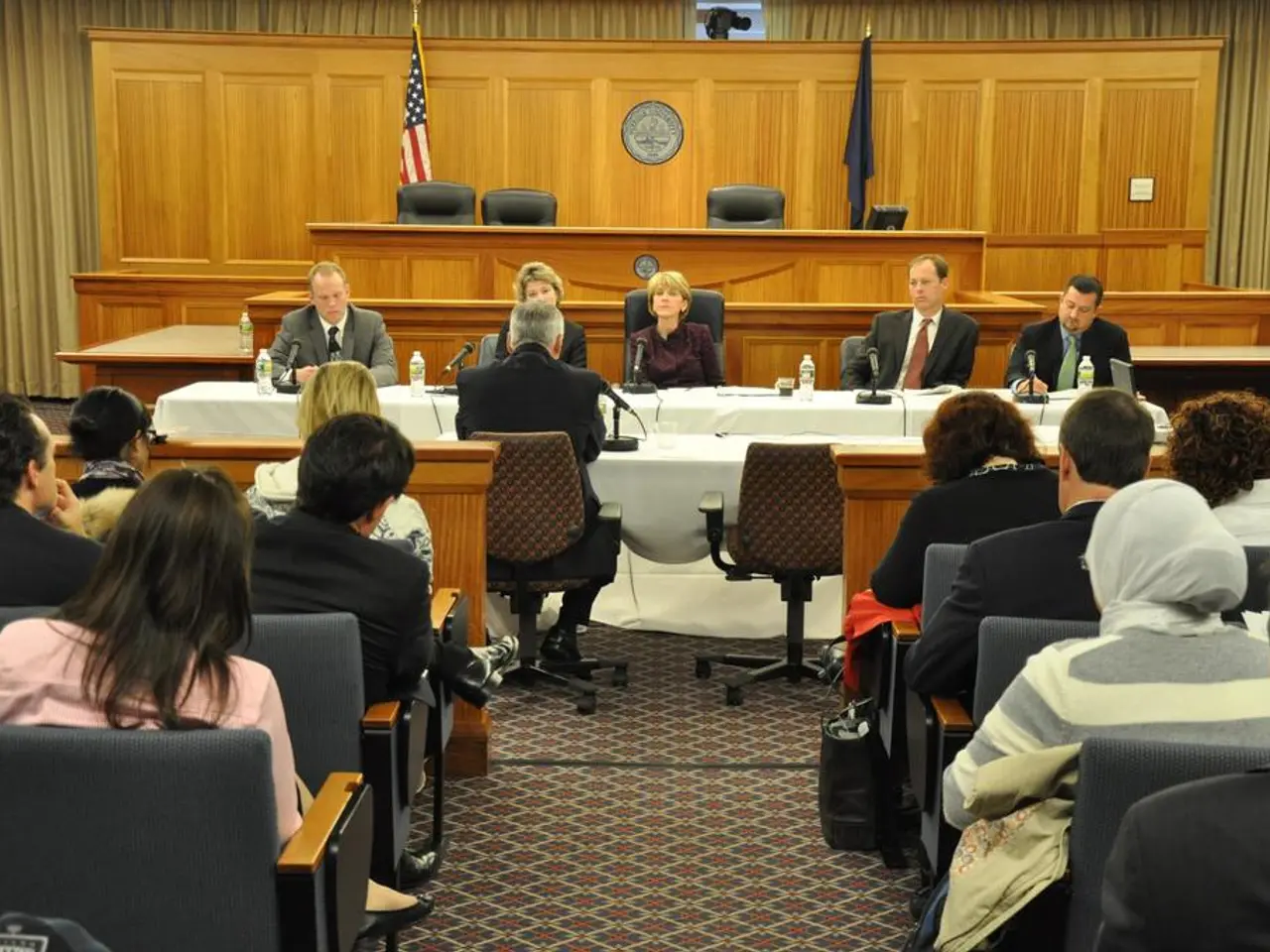Trilateral summit backing receives commitment from European authorities
As efforts towards a trilateral summit involving US President Donald Trump, Russian President Vladimir Putin, and Ukrainian President Volodymyr Zelensky are actively underway, the path to this critical diplomatic meeting remains uncertain and delicate.
The summit, considered a key next step following recent diplomatic engagement, is anticipated to take place in early September 2025, according to U.S. officials [1][2][3]. The talks are being led by the United States, with Zelensky confirming ongoing discussions with U.S. envoys about meeting preparations and the format of talks involving Russia [2]. Trump has expressed optimism that the trilateral meeting is a matter of "when, not if" it will occur [3][4].
However, the summit hinges on a preceding bilateral meeting between Putin and Zelensky, which remains difficult due to territorial and legitimacy disputes [1][2][4]. Putin has proposed freezing the battle lines if Ukraine cedes control of remaining territories in Donetsk and Luhansk, a demand Ukraine and its partners find unacceptable before any high-level talks [1][3][5].
Regarding security guarantees for Ukraine, Trump and his advisers have discussed providing "Article 5-style" guarantees—that is, collective defense assurances similar to NATO’s mutual defense clause—backed by several countries, although the details remain vague and not fully defined [1]. Ukraine expects to receive a concrete Western-backed plan on security guarantees shortly, reflecting ongoing consultations between Kyiv and the U.S. [2]. Trump indicated his administration’s security guarantees would aim to support Ukraine principally through arms sales, intelligence, and possibly air support, while Europe would bear much of the burden [4].
The leaders of the EU are working closely with Zelensky and the United States to reach a just and lasting peace. The EU agrees that strong security guarantees for Ukraine and Europe are essential in any peace deal [6]. The UK Prime Minister, Keir Starmer, welcomes the openness of the US to provide robust security guarantees to Ukraine [7]. No limitations should be placed on Ukraine's armed forces or on its cooperation with other countries [8].
The leaders are seeking clarity on the US role in these potential security guarantees. European Commission President Ursula von der Leyen agrees that strong security guarantees for Ukraine and Europe are essential in any peace deal [9]. Russia cannot have a veto against Ukraine's membership of the EU and NATO [10].
France will work with the US and partners in the "Coalition of the Willing" to make progress on a lasting peace with security guarantees [11]. The leaders support Ukraine and are determined to do more to keep it strong in order to achieve an end to the fighting and a just and lasting peace [12].
If the war continues, the leaders have stated that sanctions will continue to be strengthened against Russia [13]. The leaders thanked Donald Trump for the update on discussions in Alaska [14].
In summary, the trilateral summit represents a tentative and complex diplomatic effort in a highly contested conflict environment with significant political and security hurdles remaining unresolved. The leaders are ready to work with Donald Trump and Volodymyr Zelensky towards a trilateral summit with European support.
- The upcoming trilateral summit, scheduled for early September 2025, is not only a significant event in the realm of politics but also a critical point for war-and-conflicts and policy-and-legislation, as it involves discussions on security guarantees, territorial disputes, and potential peace deals.
- The leaders are actively discussing and coordinating their efforts to provide strong security guarantees for Ukraine and Europe, which is a significant part of the General-news, as it could potentially lead to a just and lasting peace, and influence the course of politics and international policy-and-legislation.





